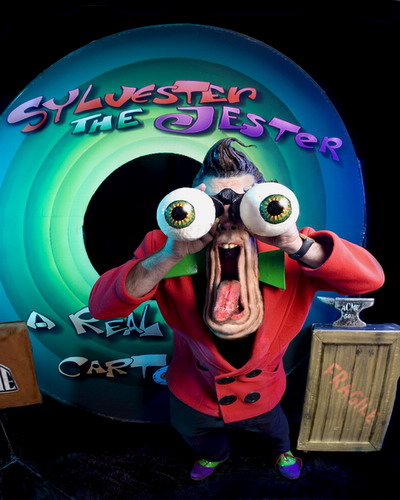(单词翻译:单击)
范文欣赏
我们或许不能像伟人那样超凡脱俗,但可以时时借助幽默来使自己开心,使自己超脱尘世的种种烦恼。漫画就是这样的一种幽默形式。
Art and Humor
Millions of people struggle out of bed each morning, fumble into some clothes, and make their way to a cup of coffee and the morning newspaper①. They need something cheerful to remind them that the rest of the day will be less difficult than getting up. This need may be the reason that many of them turn their half-opened eyes to the comics section of the newspaper as they sip their first cups of coffee of the day.
Cartoons reflect the times and the troubles and worries of people. They give people an opportunity to laugh at themselves and at familiar situations. For example, a cartoon might say that the government of a country is responsible for the bad economy and also show the government leaders as a group of ridiculous people. Being able to use the leaders as scapegoats and to laugh at the leaders somehow makes people feel better about their situation.
Cartoons also make people laugh at their own personal worries. Young people who are not always sure of how to act can smile at their awkwardness. Old people whose grown children pay little attention to them can chuckle at their neglect and loneliness. Students who have studied too little before an examination can laugh at their anxiety. Everyone’s problems are made bigger–than–life in the comics. Perhaps the problems seem funny because there is humor in something that is real being made unreal.
A cartoon combines art and humor. When it is skillfully done, a simple line drawing and a few words can make people laugh. Their troubles seem less important, and they enjoy life more fully.
[276 words]
点评及翻译
行文点评:
这篇文章结构比较清晰。第一段提出观点:
漫画可以令人快乐,作者用了struggle out of bed, fumble into some clothes, 形象地展示了一个大多数读者都非常熟悉的生活场景。第二、三段从公众和个人的角度说明,漫画反映人们的时代和生活特点;每段的第一句话都是主题句(topic sentence),即每一段都在第一句提出这一段的分论点,再对其加以论证。第四段总结全文,点明文章的主题。
文中排比句的运用,比如第三段中对不同类型人的笑的描述Young people … Old people … Students …,也值得读者在写作中借鉴。
翻译:
艺术与幽默
每天清晨,成千上万的人不情愿地起床,摸索着穿上衣服,然后喝咖啡,看早报。他们需要一些令人高兴的事情来提醒自己一天中剩余的时间将不会像起床那样难受。这就是为什么他们会在喝一天中的第一杯咖啡时将惺忪的睡眼投向报纸上的连环漫画专栏的原因。
漫画反映一个时代,也反映人们的问题和烦恼。它给了人们一个自我解嘲的机会,让人们对他们熟悉的事情发笑。例如,某幅漫画会把经济不景气归咎于一个国家的政府,但也会把政府领导人画成一群可笑的人。把领导人当成替罪羊来加以嘲讽,在某种程度上这会让人们对自己的处境感觉好一点。
漫画也使人们对个人烦恼付之一笑。年轻人不知所措时可以对困境微微一笑。被成年子女冷落的老人可以对自己被人遗忘、孤独的境地轻轻苦笑。而“平时不烧香,临时抱佛脚”的学生也可以对考试前的焦虑笑一笑。连环画把人们的问题夸张地表现出来。也许那些问题看上去很可笑,这是因为当真实的事物被夸大到不真实的程度时,本身就产生了幽默。
漫画结合了艺术和幽默。巧妙地画几笔简单的线条,写几句简洁的话就能让人开怀大笑。人们的烦心事看上去不再那么重要了,而人们也能够更充分地享受生活。
词汇斟酌:
fumble v. 笨拙地做,摸索
comic n. 连环画页,连环漫画
?sip v. 呷,啜
?ridiculous a.荒谬的, 可笑的
?scapegoat n.替罪羊
?awkwardness n.笨拙, 不雅观
?chuckle vi.吃吃的笑, 咯咯叫



